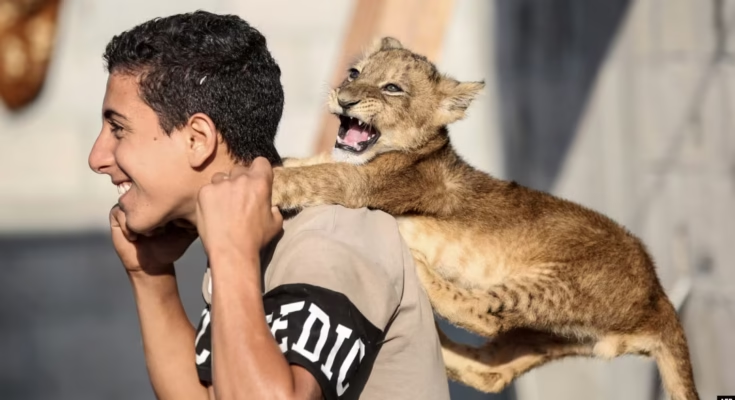Lion cubs—small, playful, and irresistibly adorable—are also powerful wild animals with very specific needs. Whether born in a wildlife sanctuary, zoo, or under conservation care, raising a lion baby (cub) requires expert knowledge, proper facilities, and legal permissions.
This guide offers clear, beginner-friendly lion baby care tips to help you understand how to nurture these big cats in a way that supports their health, safety, and natural instincts.
Important: Lions are wild and protected species in many countries. Owning or raising one without proper permits is illegal and potentially dangerous. These tips are meant for licensed caretakers, conservationists, and animal care professionals.
1. Legal and Ethical Considerations
Before any hands-on care begins:
- Check local wildlife laws — many countries require strict permits.
- Only care for lion cubs in approved facilities such as zoos, sanctuaries, or conservation programs.
- Avoid private ownership — it’s unsafe for the animal and handler.
Ethical care ensures that lion cubs are raised in conditions that respect their natural needs and protect them from exploitation.
2. Creating a Safe and Comfortable Habitat
A lion cub’s environment should mimic the wild as much as possible.
- Warmth: Newborn cubs need a consistently warm space (around 27–30°C / 80–86°F). Use heating lamps or pads if necessary.
- Space to Move: Even young cubs should have room for short walks and play.
- Soft Bedding: Use clean straw, blankets, or soft mats to prevent injury.
- Secure Enclosure: Ensure the area is predator-proof and escape-proof.
3. Feeding a Lion Cub
Nutrition is the foundation of healthy growth.
- First Weeks: Lion cubs should nurse from their mother’s milk, which contains essential antibodies. If unavailable, use a specialized milk formula recommended by wildlife veterinarians.
- Weaning Stage (6–8 Weeks): Introduce soft, finely chopped raw meat alongside milk.
- Solid Foods (3–4 Months): Gradually increase meat portions and reduce milk intake.
Pro Tip: Never feed cooked meat—it lacks essential nutrients lions get from raw diets.
4. Hydration and Cleanliness
- Fresh, clean water should always be available.
- Clean feeding bowls after every meal to prevent bacterial growth.
- Keep bedding and play areas sanitized to protect against parasites.
5. Socialization and Playtime
Play is essential for developing hunting skills and coordination.
- Provide soft toys to bite, claw, and chase.
- Allow interaction with siblings or other young lions for natural social learning.
- Avoid rough human play—it can encourage aggressive behavior later.
6. Health Monitoring and Veterinary Care
Regular check-ups with an experienced exotic animal vet are crucial.
- Vaccinations: Lions need protection against diseases such as feline distemper and rabies.
- Deworming: Treat for internal parasites regularly.
- Weight Tracking: Monitor growth rates to ensure proper development.
- Watch for Warning Signs: Loss of appetite, lethargy, or diarrhea require immediate veterinary attention.
7. Encouraging Natural Behaviors
Even in captivity, lion cubs should develop their natural instincts.
- Use puzzle feeders to encourage problem-solving and hunting skills.
- Provide logs, branches, and climbing structures for exploration.
- Allow supervised time outdoors to stimulate their senses.
8. Transitioning to Independence
As cubs grow older (12–18 months), they must learn to be self-reliant.
- Gradually reduce human interaction.
- Increase space and introduce more challenging enrichment activities.
- Encourage group living to mimic pride dynamics.
9. Safety Precautions for Caretakers
Lions—even as babies—can be dangerous.
- Always handle cubs with protective gloves.
- Never leave small children unsupervised around cubs.
- Work in teams when moving or feeding cubs.
10. Common Mistakes to Avoid
- Overhandling: Can cause dependence and behavioral issues.
- Improper Diet: Leads to malnutrition and bone problems.
- Lack of Enrichment: Causes boredom, stress, and aggression.
- Ignoring Legal Rules: Can result in fines, animal confiscation, or injury.
Why Proper Care Matters
Caring for a lion baby isn’t just about keeping it alive—it’s about preparing it for a healthy, enriched life. Whether destined for release into the wild, integration into a sanctuary, or participation in a conservation program, a well-raised lion cub has a better chance at thriving.
Final Thoughts
Lion baby care is a serious responsibility requiring time, resources, and expertise. With proper feeding, habitat, health monitoring, and socialization, a cub can grow into a strong, confident adult lion. Always prioritize safety, legality, and the animal’s long-term well-being.
Call to Action
🦁 Passionate about big cat conservation? Subscribe to our wildlife care newsletter for expert tips, success stories, and behind-the-scenes looks at real lion rescue projects. Let’s work together to protect and nurture these magnificent creatures for generations to come.


